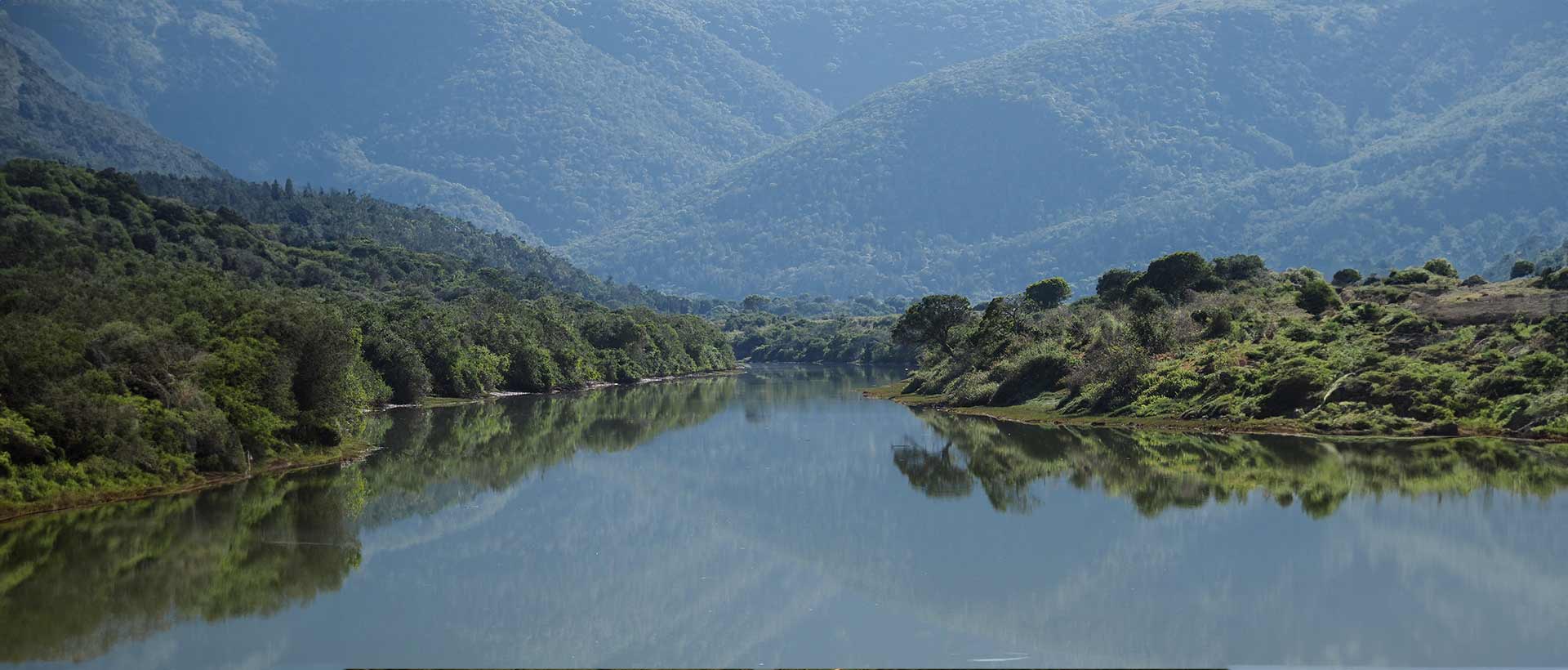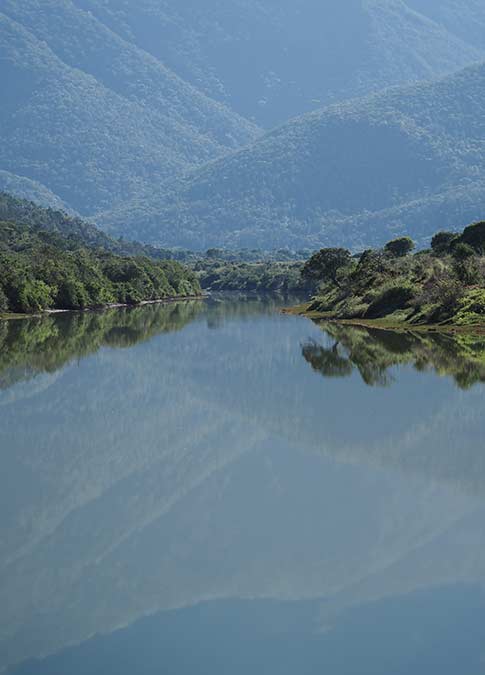Sustainable Food Production through Permaculture
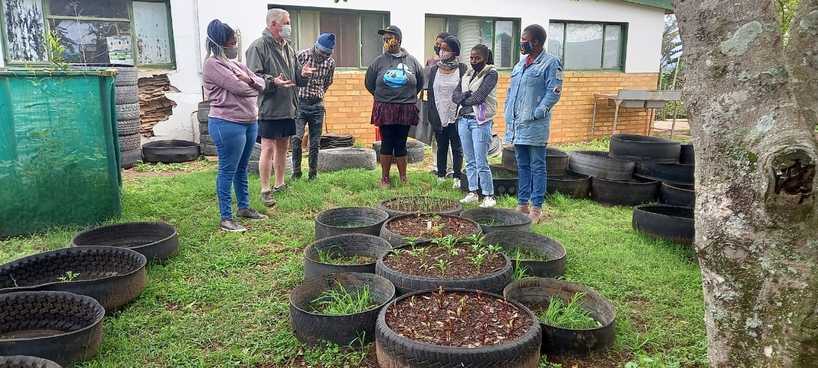
The Kariega Foundation’s universal mission, in partnership with Kariega Game Reserve is to simply make our common home, planet earth, a better place for everyone and everything!
Outside of the extensive conservation work undertaken in Kariega’s 10 000 hectare, Big 5, protected wilderness, we have a broad and dynamic set of community projects that are aligned with this mission and strive to foster a collective consciousness to protect and preserve our natural heritage and improve living conditions for all.
During a recent team building and strategic planning session with the Kariega Foundation Coaches, APU Interns (affectionately called the “Matriarchs’) as well as the conservation and education interns, it was decided to focus on our neighbouring communities desire to develop sustainable food gardens as so many homes are experiencing food shortages.
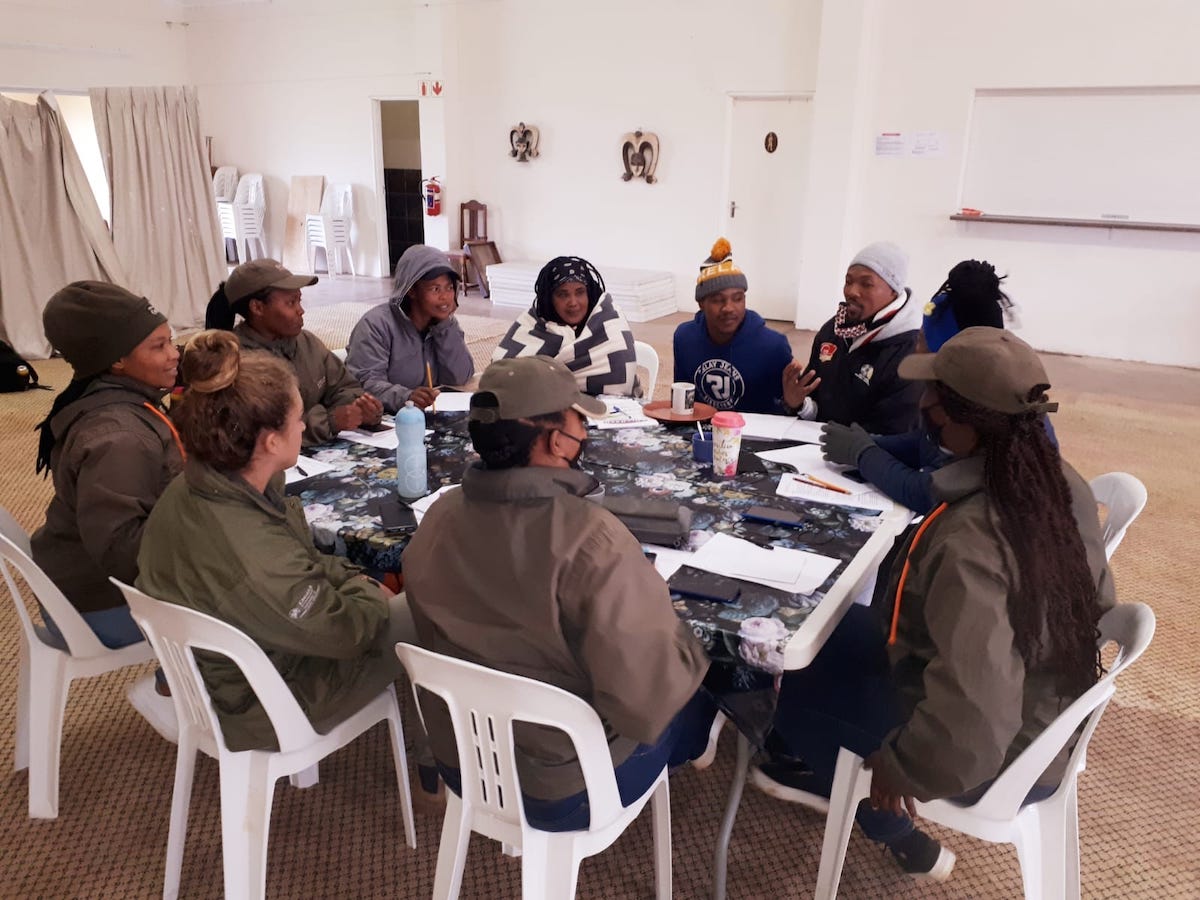
Traditional subsistence gardening practices have typically failed within these communities as this system denudes the soil of fertility and as a result the yields over time become poor and non-sustainable in terms of delivering nutritious food for families.
To address this issue, the Kariega Foundations Education and Environmental Specialist, Jumbo Williams planted the seed of sustainable food production through permaculture which focuses on developing farming or gardening systems, based on crop diversity, resilience and natural productivity to create sustainability and healthy yields.
Environmental Education Permaculture Programme
One of the Kariega Foundation’s most active and effective projects is Youth Development through sport, dance, Social and Emotional Learning (SEL) and environmental education.
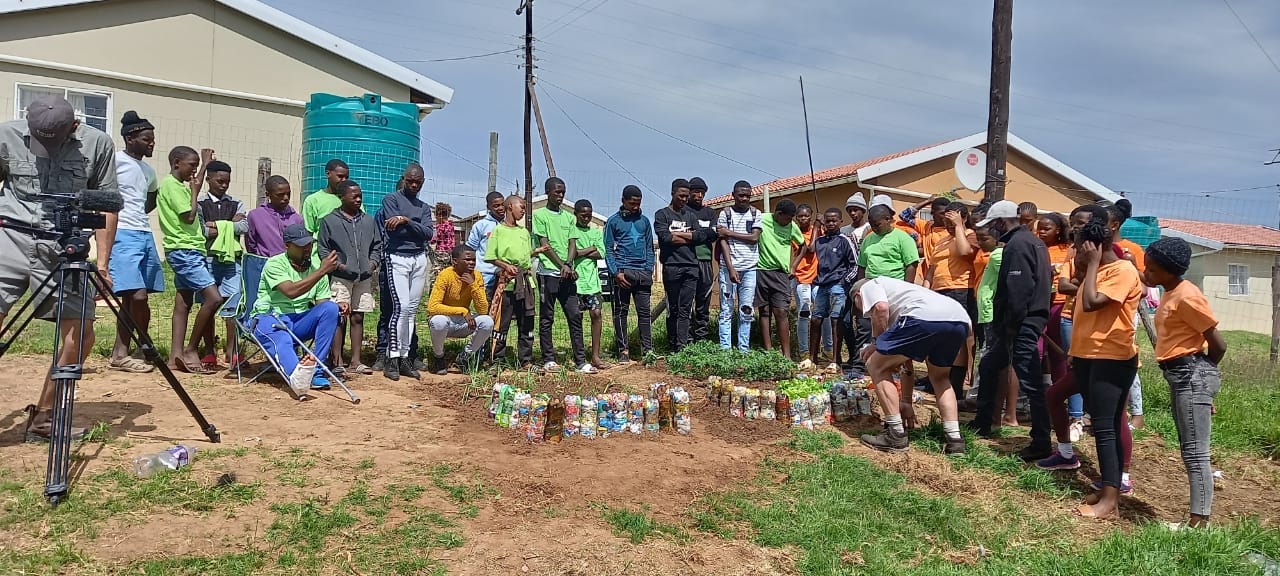
Over 300 children and teenagers across three communities are registered with this our Youth Development programme. All of them either play rugby, soccer or netball, engage in social and emotional learning and environmental education after school. As part of their environmental education programme they were exposed to ‘SOIL ‘ and the practice and ethics of permaculture.
‘SOIL’, standing for Sustainable Organic and Innovative Living, is the Kariega Foundations permaculture training and support programme designed and developed by team member, Jumbo Williams.
By entering a contract with ‘SOIL’, members receive permaculture training at the Kariega Foundation Conservation Centre (KCC) training garden, as well as on-going support, guidance, and source materials, such as seedlings and compost, to assist them.
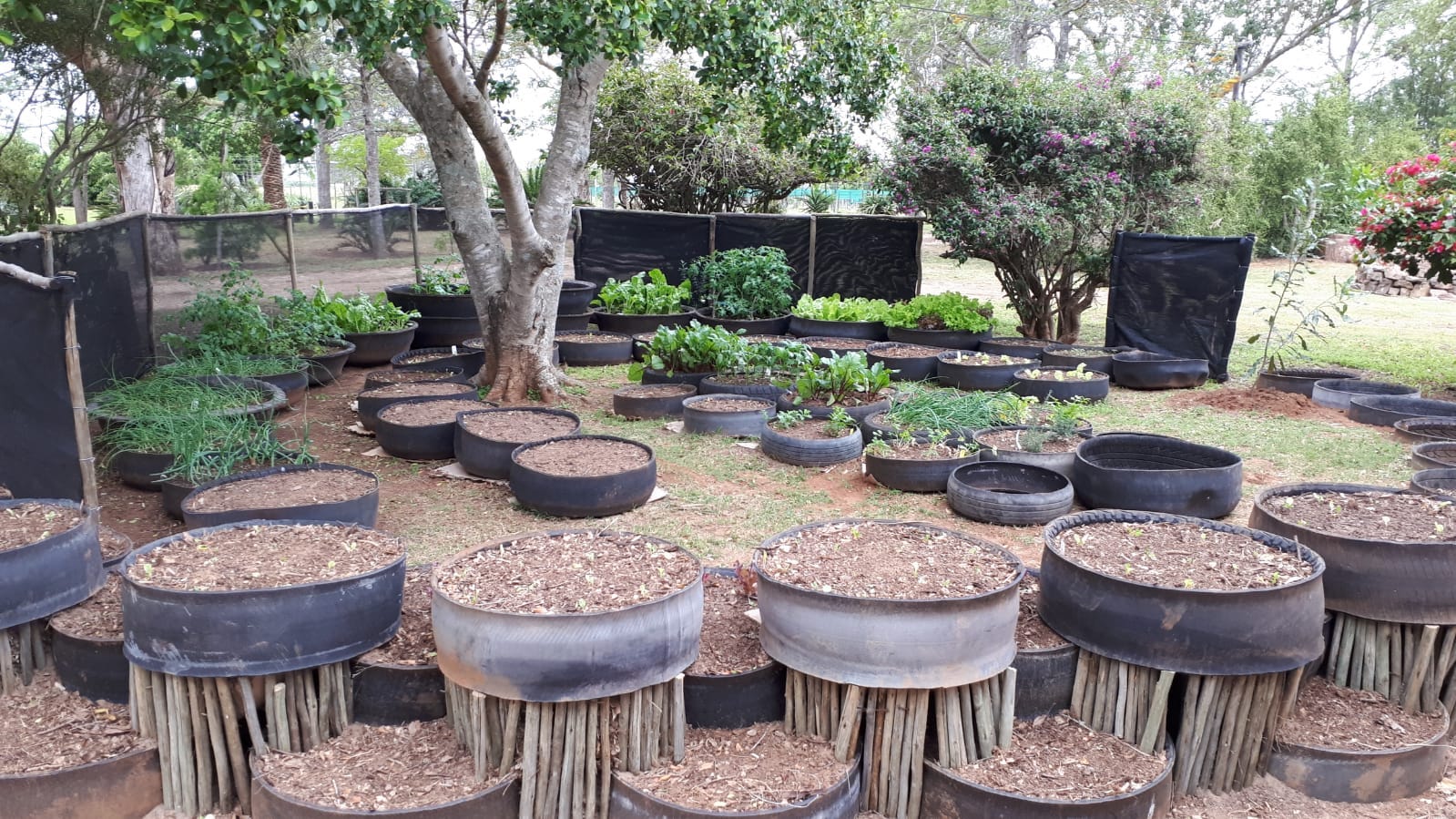
The opportunity to be part of the Kariega Foundation SOIL programme is open to any community members. The latest group has been a gathering of single mothers, who because of the social and emotional course they were participating in with the Kariega Foundations Community Manager, Nomawethu Ngangqu, decided to join SOIL and improve their lives, by creating a ‘community garden’.
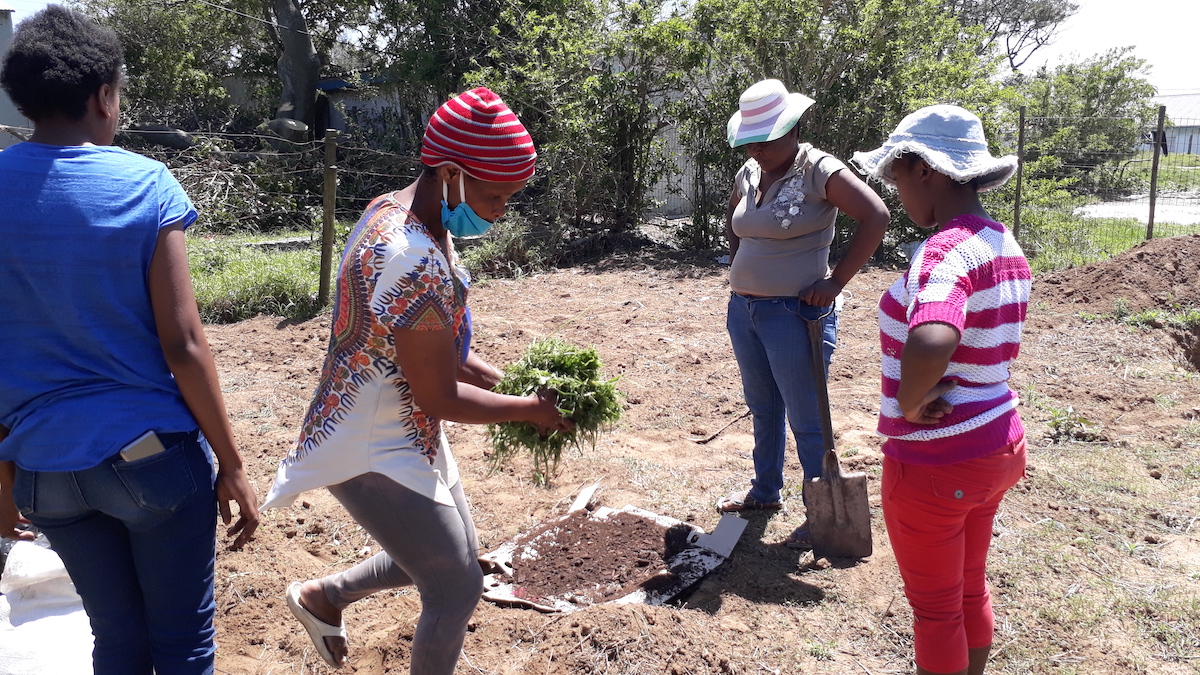
Similarly, and of special interest is a group of teenage boys, who have also signed up for SOIL with the intention of developing a collective garden.
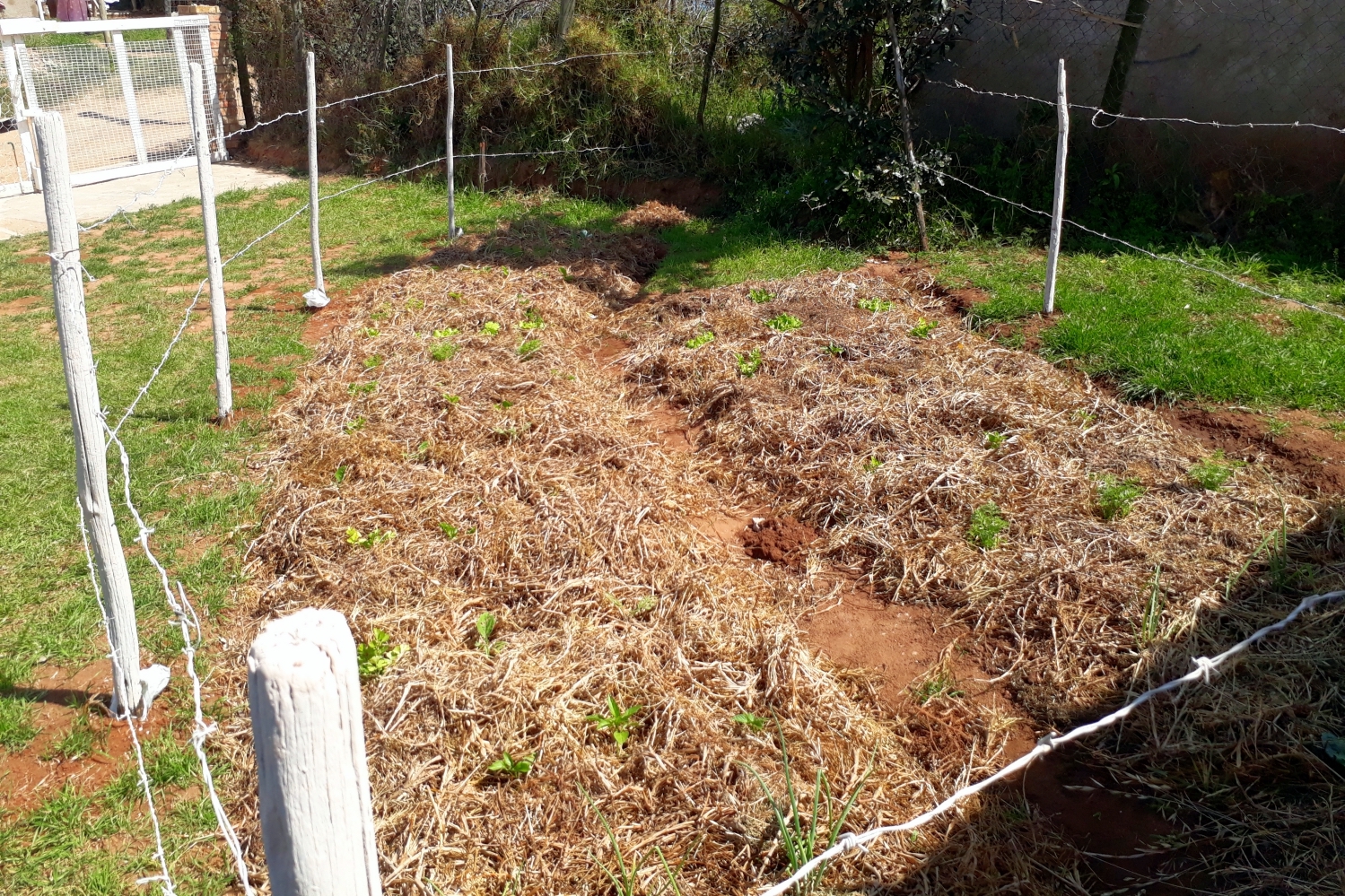
Permaculture Works With Nature
Permaculture is a philosophy of working with, rather than against nature. It looks at plants and animals in all their functions, rather than treating any area as a single product system. In other words, by observation seeing which work together.
Permaculture is also rooted in a set of ethics, which guide decisions ensuring that both the human and natural environment benefit. This means understanding that we are dependent on a planet which has limited, and damaged resources, and we need to conserve these resources. That dictates that we need to use them wisely.
This set of ethics can be likened to the term ‘ubuntu’, for if we follow the ethics, both the planet and humans, might live in harmony.
Permaculture ethics dictate that we must:
- Care for the Earth. All activities, must care for the natural resources.
- Care for people. All activities are aimed at empowering ourselves and other human beings but bearing Earth Care in mind.
- Share the surplus. All extra resources are used to improve earth and are shared, so creating a ‘share resources’ mindset.
- Set limits to consumption. Be mindful of overusing the natural resource, and thus depleting it further! Use only what we need!
While the SOIL training endeavours to instil these ethics in all members, there are some important practical elements that must be learnt at KCC and then the skills and infrastructures transferred to the communities, with support in terms of guidance and when needed physical resources and infrastructure.
Compost is King
One cannot sustain a natural gardening system without the replenishment of the nutrients absorbed by the various crops, making compost king within the permaculture world.
This is done without any artificial additives in the form of chemically produced fertilizers. Firstly, the concept of Permaculture does not advocate the use of fertilizers, nor herbicides, or pesticides. We make compost, which is added to the soil.
The art of making compost is a key component of SOIL training, the skills and practice of which must transfer to the community.
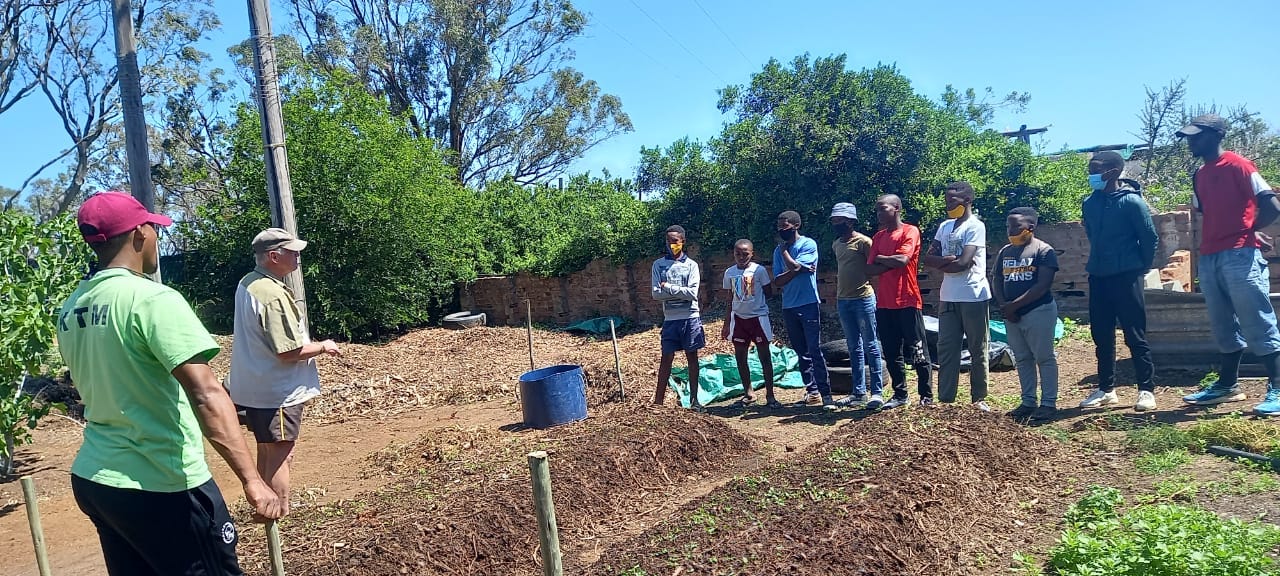
Worm Farming
Worms are extremely important for breaking down organic matter into humus. Worms eat organic matter. Anything that has been living eventually becomes worm food. That includes dead plant material, fruits, vegetables, and microbes, both dead and alive.
We know that compost worms can produce a huge amount of quality compost themselves. Worm castings (faeces) are 5 to 11 times richer in plant nutritional value than the raw materials the worms are eating.
- The castings (known as vermicompost) are used in the following ways: Small handfuls are put into compost heaps to add nutrients and we also add worms to the heaps. In that manner the worms are working 24/7 and they don’t draw a salary.
- The castings are also sprinkled around the base of mature plants to feed them.
- Lastly, we use the ‘vermi tea / worm tea’, which is the ‘worm wee’ that collects in the basin placed below the plug hole of the bath. This is a great liquid fertiliser. We dilute this vermi-tea in a 1:10 ratio in water and use as a liquid fertiliser.
Kariega Conservation Centre Nursery
The Kariega Conservation Centre nursery has been created for several reasons.
- We propagate indigenous plants for the re-introduction into the natural environment, where poor farming practices have had a negative impact on the land. To date we have placed a strong emphasis on propagating Spekboom (Portulacaria Afra). Apart from being used as a tasty addition to salads, it helps to remove carbon dioxide from the atmosphere. And, local Africans have discovered numerous uses over the centuries.
- We use the nursery to grow vegetable seedlings to be shared with SOIL members in the community and for our own garden.
- There is a vision to propagate indigenous fruit trees that can be a useful community food source, as well as traditional medicinal plants and trees.
Thank You To Our Project Donors and How You Can Help
We are very grateful to our project donors, Inspower, for donating the seed capital to get the initial phase of this project off the ground. We hope you take great pride in what has been accomplished and your important role in enabling the process.
Conservation is team sport and the Kariega Foundation celebrates many meaningful, collaborative partnerships globally.
You can support this project by donating via our GivenGain platform.
You can also share your ideas and join our conservation community by emailing us on foundation@kariega.co.za
Thank you.
